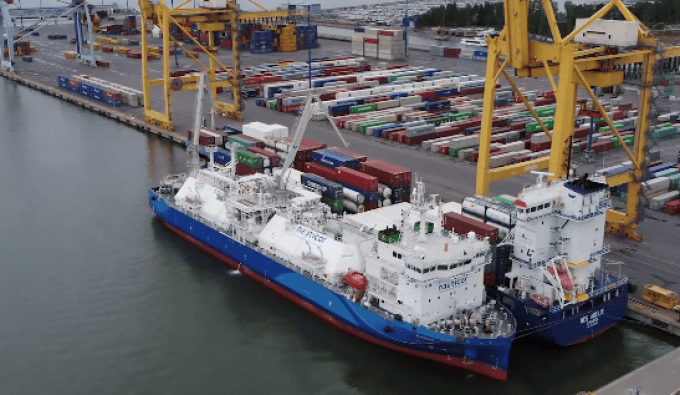CMA CGM leads latest hunt for new tonnage with a 1m teu+ orderbook
The new year has seen French carrier CMA CGM inviting offers from South Korean and ...

A Unifeeder-chartered vessel is to be used for the first trial of synthetic natural gas (SNG) fuel as a key part of the shipping industry’s quest to decarbonise shipping.
In 2017, the 1,036 teu feedermax Wes Amelie became the first containership in the world to be retrofitted with an LNG fuel system.
Engine manufacturer MAN Energy Solutions and the ship’s owner and manager, Wessels Marine, intend to demonstrate that SNG – produced from renewable electrical energy – can be successfully used as a shipping fuel.
Twenty tons ...
Amazon pushes into LTL for small package fulfilment and UPS does a u-turn
New senior management for DSV as it readies for DB Schenker takeover
Volumes set to 'fall off a cliff' as US firms hit the brakes on sourcing and bookings
Asian exporters scramble for ships and boxes to beat 90-day tariff pause
Temporary tariff relief brings on early transpacific peak season
'Tariff madness' will prompt renegotiation of ocean shipping contracts
Response to tariffs by Chinese importers may see extra costs for US shippers
Forwarders 'allowing the fox into the chicken run' by supporting 'hungry' carriers

Comment on this article